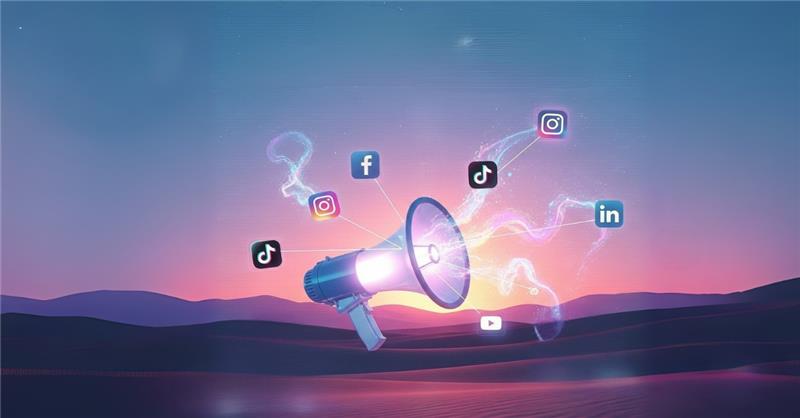You can build a business alone. Many do. But sooner or later, a ceiling pops up like an unexpected speed bump. The business consultants and entrepreneurs who smash through it don’t sprint harder – they partner smarter.
Not the “swap business cards and hope” type.
Not the “we should collaborate sometime” dance.
Real partnerships.
The kind that makes growth feel less like pushing a boulder uphill and more like rolling it downhill with a buddy cheering you on.
Deepak Mandy puts it well: “Partnerships aren’t about sharing the pie. They’re about baking a bigger one.”
And honestly, who argues with a bigger pie?
Below is a sharper, cleaner guide to turning partnerships into your strongest growth engine.
1. Strategic Alignment: Partners Who Boost Your Strengths!
Most partnerships fail before they even get moving. Why?
Because misaligned expectations love wearing fancy opportunity masks.
Smart business consultants start with alignment. Everything else follows.
Look for gaps you can’t fill on your own
- Services extending your offer without stretching your team thin.
- Technical depth you don’t currently have.
- Industry knowledge you haven’t had time to master.
- Cross-border access that would take years to build on your own.
Shared values that dodge future headaches
- Work ethic you can trust.
- Standards that match your client experience.
- Quality levels you won’t have to debate.
- Long-term thinking, not shiny quick wins.
End goals mapped before the handshake
- Revenue benchmarks you’ll chase as a team.
- Clear expansion plans with timelines.
- Exit routes if life takes a turn.
- Milestones tracked consistently.
Cultural fit that makes the work feel natural
- Communication with zero guesswork.
- Decision speed that doesn’t slow you down.
- Risk appetites that don’t clash.
- Problem-solving styles that sit well.
A misaligned partnership drains energy. The right one feels like momentum catching wind.
2. Ecosystem Thinking: Building Networks, Not Lone Alliances

One-to-one partnerships still help, but ecosystems? They transform growth.
The business landscape in 2025 rewards teams that build collaborative webs instead of isolated connections.
Co-innovation that sparks faster breakthroughs
- Joint development of methods and tools.
- Shared research that deepens insight.
- Combined brainpower for solving messy challenges.
- Shorter innovation cycles through group effort.
Multi-partner networks with flexible muscle
- Alliances enhancing long-term capacity.
- Channel partners widening your footprint.
- Affiliate setups driving extra reach.
- Tech integrations weaving the ecosystem together.
Shared client insights that sharpen delivery
- Broader patterns revealed across partners.
- Joint intelligence shaping service decisions.
- Quality improvements guided by richer data.
- Client success monitored collaboratively.
Resource pooling that spreads risk
- Shared operational weight.
- Reduced financial burden.
- Distributed tech and infrastructure costs.
- Faster development through combined manpower.
As Deepak Mandy says, “Stop building islands. Build continents.”
He’s not wrong.
3. Demand Generation: Using Partner Audiences to Grow Faster
Your audience is finite. Your partner’s audience? Fresh air.
Partnerships multiply visibility without multiplying stress.
Co-marketing that stretches every marketing dollar
- Joint webinars with punchy insights.
- Content created together for shared audiences.
- Co-branded reports with genuine authority.
- Events that pull both communities into one room.
Lead-sharing agreements that prevent chaos
- Fair distribution of qualified leads.
- Fast response expectations stated clearly.
- Documented follow-up steps.
- Transparent reporting for both sides.
Referral systems built to last
- Commission structures both teams respect.
- Measurable performance metrics.
- Consistent quality filters.
- Focus on long-term client value.
Brand association that builds instant trust
- Partner logos displayed with purpose.
- Joint case studies showing real outcomes.
- Testimonials that highlight joint wins.
- Shared media appearances extending influence.
Done right, demand generation through partners feels less like sales and more like service.
4. Operational Efficiency: Making Collaboration Smooth, Not Stressful!

A partnership shouldn’t feel like juggling flaming swords.
It should simplify operations, not complicate them.
Governance that keeps everyone aligned
- Roles spelled out clearly.
- Decision authority documented.
- Meeting rhythms with real consistency.
- Accountability built into the structure.
Tech that keeps the partnership humming
- Shared project boards.
- Communication tools everyone actually uses.
- Centralised storage for important files.
- Dashboards tracking shared performance.
Documented processes reducing friction
- Clear delivery workflows.
- Quality checkpoints at predictable stages.
- Standardised onboarding for clients.
- Resolved issue procedures spelled out.
Resource allocation that avoids gridlock
- Time commitments agreed early.
- Transparent budget split.
- Dedicated partnership managers.
- Backup plans for capacity dips.
When operations work, clients never see the seams. Everything looks like one polished experience.
5. Risk Mitigation: Partnerships Built to Survive Storms.
Partnerships carry risk, but avoiding structure carries more.
Contracts that remove guesswork
- Clear scopes.
- Defined financials.
- Intellectual property spelled out.
- Exit clauses for tricky moments.
Boundaries that stop scope creep from sneaking in
- Detailed deliverables.
- Formal change request paths.
- Transparent pricing for extras.
- Expectations aligned early.
Regular check-ins that keep the partnership alive
- Honest quarterly reviews.
- Metric-based evaluations.
- Proactive correction when needed.
- Wins acknowledged and studied.
Contingency planning that reduces panic
- Backup resources.
- Alternate delivery paths.
- Safety buffers in finances.
- Communication plans for tough days.
Good intentions don’t protect partnerships. Structure does.
6. Measurement & Optimisation: Knowing What Actually Works

You can’t refine what you don’t measure.
And you shouldn’t scale what hasn’t proven itself.
Key metrics that tell the real story
- Revenue generated through the partnership.
- Cost per client compared to direct acquisition.
- Lifetime value of referred clients.
- Time saved through shared operations.
Data-driven adjustments that lift performance
- ROI calculated at regular intervals.
- Lead pipelines measured separately.
- Satisfaction scores tracked across both teams.
- Bottlenecks analysed and fixed.
Continuous optimisation of partnership systems
- Workflow updates as insights emerge.
- Communication frequency adjusted.
- Resource distribution tweaked.
- Tools upgraded when justified.
Scaling the partnerships that work best
- Replicating what delivers strong returns.
- Transferring lessons to new alliances.
- Documenting best practices.
- Building partnership playbooks over time.
Deepak Mandy sums it up: “Partnerships without measurement are luck. And luck runs out.”
The Partnership Advantage
Solo growth hits limits fast. Partnership growth compounds.
Top consultants and entrepreneurs treat partnerships as strategic scaffolding – not side projects.
It all comes down to:
- Strategic alignment
- Ecosystem thinking
- Shared demand generation
- Operational efficiency
- Risk protection
- Ongoing optimisation
Partnership-driven growth isn’t accidental. It’s architecture.
Deliberate. Structured. Repeatable.
The leaders who soar aren’t the ones running alone.
They’re the ones building with others and multiplying their impact one smart partnership at a time.








